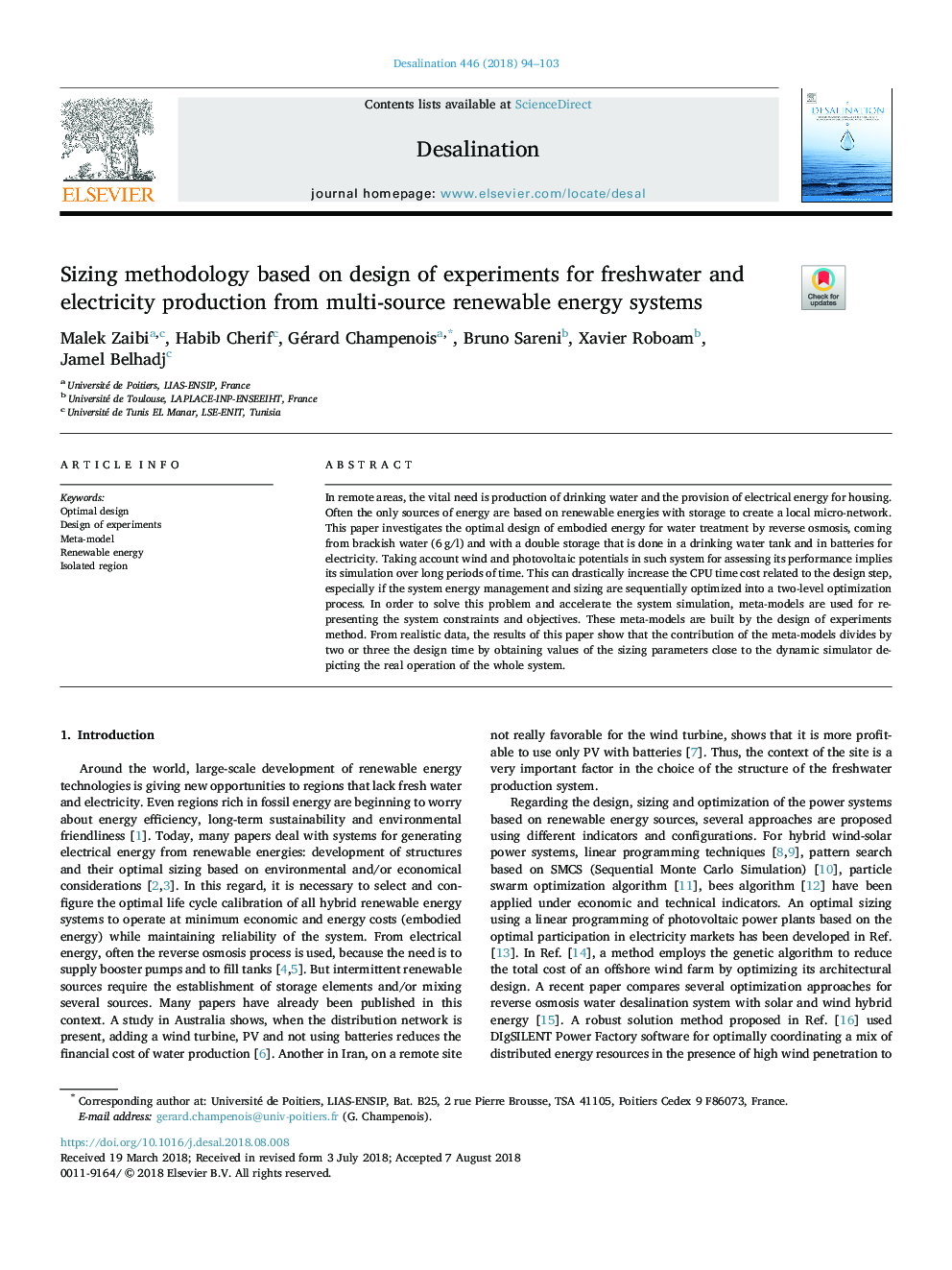| Article ID | Journal | Published Year | Pages | File Type |
|---|---|---|---|---|
| 10139821 | Desalination | 2018 | 10 Pages |
Abstract
In remote areas, the vital need is production of drinking water and the provision of electrical energy for housing. Often the only sources of energy are based on renewable energies with storage to create a local micro-network. This paper investigates the optimal design of embodied energy for water treatment by reverse osmosis, coming from brackish water (6â¯g/l) and with a double storage that is done in a drinking water tank and in batteries for electricity. Taking account wind and photovoltaic potentials in such system for assessing its performance implies its simulation over long periods of time. This can drastically increase the CPU time cost related to the design step, especially if the system energy management and sizing are sequentially optimized into a two-level optimization process. In order to solve this problem and accelerate the system simulation, meta-models are used for representing the system constraints and objectives. These meta-models are built by the design of experiments method. From realistic data, the results of this paper show that the contribution of the meta-models divides by two or three the design time by obtaining values of the sizing parameters close to the dynamic simulator depicting the real operation of the whole system.
Related Topics
Physical Sciences and Engineering
Chemical Engineering
Filtration and Separation
Authors
Malek Zaibi, Habib Cherif, Gérard Champenois, Bruno Sareni, Xavier Roboam, Jamel Belhadj,
